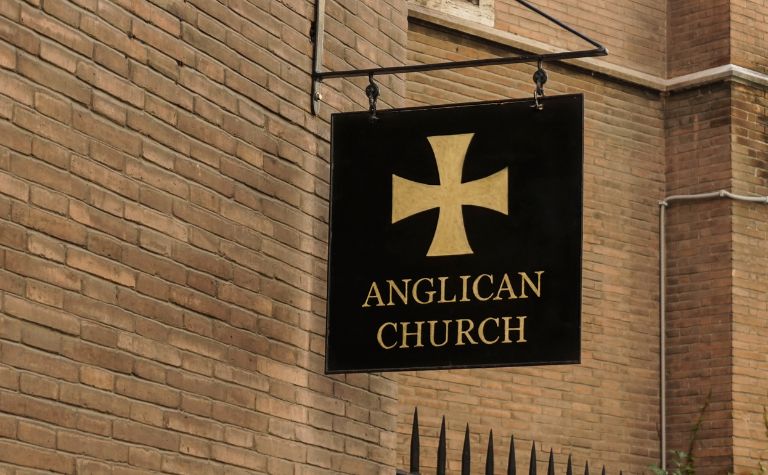Knowing the similarities and differences between Anglicanism and Evangelicalism is beneficial because it provides clarity on theological nuances.
Comparing the traditions also aids in understanding the history of Christianity, as both trace their roots back to the Bible.
Additionally, recognizing the differences between Anglicanism and Evangelicalism helps in comprehending cultural practices and traditions shaped by these traditions.
The following comparison charts and concise summaries shed more light and provide more depth on the differences between the Anglican Church and the Evangelical tradition.

Comparing Anglicanism and Evangelicalism: An Overview
“Anglican” originates from the Latin “Anglicanus,” meaning “of England,” referring to the Church of England.
“Evangelical” comes from the Greek “euangelion,” meaning “good news” or “gospel.” It denotes a focus on the teachings of the New Testament and the proclamation of the Christian message.
| Anglicanism | Evangelicalism | |
|---|---|---|
| Name | Anglicanism | Evangelicalism |
| Size | Estimated 85 million worldwide | Estimated 300 million worldwide |
| Date Started | 16th century | 18th century |
| Founder | King Henry VIII (as a distinct entity from the Roman Catholic Church) | Various leaders during the Protestant revivals |
| Key Beliefs | Apostolic succession, sacraments, Via Media (middle way between Protestantism and Catholicism) | Authority of the Bible, personal conversion experience, cruciality of Christ’s atoning sacrifice |
| Key Practices | Eucharist, liturgical worship, confirmation | Bible study, personal prayer, evangelism |
| Divisions | High Church, Low Church, Broad Church | Various denominations like Baptists, Pentecostals, Methodists, etc. |
| Central Location | Canterbury, England (Church of England) | No single central location; widespread globally |
| Sacred Texts | The Bible; The Book of Common Prayer | The Bible |
How is it that different denominations are Evangelical?
Evangelical traditions emphasize personal faith, the Bible’s authority, and evangelism.
These core beliefs are found across various Protestant denominations, including Baptists, Methodists, Pentecostals, and Presbyterians.
While each denomination has distinct practices, the Evangelical emphasis on a personal relationship with Jesus Christ is a unifying factor.
What’s the difference between the High Church and Low Church?
In Anglicanism, “high church” refers to practices and liturgy resembling Catholic traditions, emphasizing sacraments and rituals.
“Low church” leans towards simpler, more Protestant-style worship, emphasizing preaching and personal piety.
The terms reflect differences in liturgical preferences and theological emphasis within the Anglican Communion.
What is Apostolic Succession?
Apostolic succession in Anglicanism is the belief that bishops are consecrated in an unbroken line from the original apostles.
This continuity ensures the church’s teachings and sacraments remain valid and authentic.
Each bishop, when ordained, joins this historic chain linking back to Christ’s first apostles.

Anglican and Evangelical Beliefs Compared
Both Anglicans and Evangelicals believe in the Trinity: that God exists as three persons in one essence – Father, Son, and Holy Spirit.
This shared belief underscores their understanding of God’s nature and how He interacts with humanity, rooted in Christian scripture and tradition.
| Anglican | Evangelical | |
|---|---|---|
| God | One God in three persons: Father, Son, and Holy Spirit | One God in three persons: Father, Son, and Holy Spirit |
| The universe | Created by God and declared good; has fallen due to sin | Created by God; humanity’s sin has introduced brokenness |
| Ultimate reality | God is the ultimate reality, eternal and unchanging | God is the ultimate reality, sovereign over all creation |
| Human beings | Created in God’s image; inherently sinful but redeemable | Created in God’s image; fallen and in need of salvation |
| The problem with the world | Sin, leading to estrangement from God and others | Sin, causing separation from God and eternal consequences |
| The solution to the problem | Salvation through faith in Jesus Christ and the sacraments | Personal conversion and faith in Jesus Christ’s sacrifice |
| The afterlife | Heaven for the redeemed; hell for those who reject God | Heaven for believers; hell for non-believers |

The Practices of Anglicans and Evangelicals: Differences
Within the Evangelical tradition, views on baptism and communion vary. Some Evangelicals practice infant baptism, while others wait until a personal faith declaration.
Communion interpretations also differ, with some seeing it as symbolic and others as a means of grace. These variations reflect diverse theological understandings.
| Practice | Anglican | Evangelical |
|---|---|---|
| Worship Services | Liturgical services, often following the Book of Common Prayer | Typically less formal; emphasis on Bible teaching and contemporary worship |
| Sacraments | Baptism and Eucharist (Communion) are central; also Confirmation, Ordination, Marriage, Confession, and Anointing of the Sick | Baptism and Communion; other practices vary by denomination |
| Prayer | Set prayers from the Book of Common Prayer; also personal and extemporaneous prayers | Personal and group prayers; often extemporaneous |
| Bible Reading | Lectionary-based readings in services; personal Bible study encouraged | Central to worship and personal devotion; emphasis on personal Bible study |
| Church Governance | Episcopalian structure (bishops, priests, deacons) | Varies; often congregational or led by elders/pastors |
| Evangelism | Encouraged, but methods vary by parish and individual | Strong emphasis on personal evangelism and missions |
| Festivals & Celebrations | Observance of the Christian liturgical calendar, including Advent, Christmas, Lent, Easter, and Pentecost | Emphasis on major Christian holidays like Christmas and Easter; other observances vary |
What is the Book of Common Prayer?
The Book of Common Prayer is a guide used by Anglicans for worship and sacraments.
Established in the 16th century, it standardizes liturgical practices, containing prayers, readings, and rites for various services.
It has been revised multiple times and adapted by Anglican provinces worldwide.
10 Key Events in Anglicanism and Evangelicalism
| Anglicanism | Evangelicalism |
|---|---|
| 1. Henry VIII’s break with the Roman Catholic Church (1534) | 1. The Great Awakenings (18th-19th centuries) |
| 2. Establishment of the Church of England (1534) | 2. Publication of John Wesley’s “Standard Sermons” (mid-18th century) |
| 3. The Elizabethan Settlement (1559) | 3. Founding of the Methodist movement by John Wesley (1736) |
| 4. The Book of Common Prayer’s first edition (1549) | 4. The rise of the Baptist movement (17th century) |
| 5. The Oxford Movement (1833-1845) | 5. The birth of Pentecostalism at the Azusa Street Revival (1906) |
| 6. The Lambeth Conferences begin (1867) | 6. The Fundamentalist-Modernist Controversy (1920s) |
| 7. The ordination of women priests in the Church of England (1992) | 7. The establishment of the National Association of Evangelicals (1942) |
| 8. The consecration of the first female bishop in the Anglican Communion (1989) | 8. The rise of the Christian Right and Moral Majority (1970s-1980s) |
| 9. The Anglican realignment due to disagreements on LGBTQ+ issues (21st century) | 9. The Lausanne Congress on World Evangelization (1974) |
| 10. The Anglican Covenant proposal (2009) | 10. The growth of non-denominational mega-churches (late 20th-21st century) |
How did Henry VIII Start the Church of England?
Henry VIII founded the Church of England in 1534.
Dissatisfied with the Pope’s refusal to annul his marriage to Catherine of Aragon, Henry declared himself the head of the church, separating it from the Roman Catholic Church.
This move was both political and personal, reshaping the landscape of the English church.
What were the two Great Awakenings in America?
The two Great Awakenings were periods of revivals in America.
The first (1730s-1740s) emphasized personal repentance and faith, led by figures like Jonathan Edwards. The second (early 19th century) saw widespread Evangelical fervor and social reforms.
Both movements deeply influenced American Christianity and the landscape of the church.
References:
[1] Anglicanism – Wikipedia
[2] The Anglican Communion
[3] Anglicanism – Britannica
[4] Evangelicalism – Britannica
Related Questions
Exploring the world's religions using the comparison charts below offers fascinating insights into cultures and beliefs. It opens doors to understanding human history, values, and...
Catholic vs. Protestant vs. Orthodox: What's the Difference?
Roman Catholicism, Protestant Christianity, and the Eastern Orthodox Church are the three historical branches of the Christian religion. Each tradition traces its doctrines and practices to the New...
